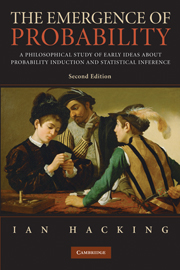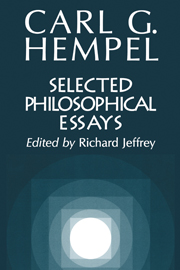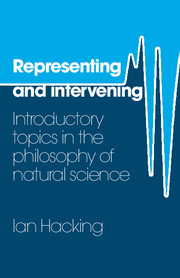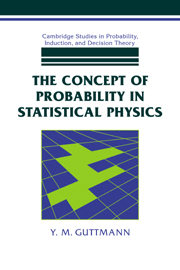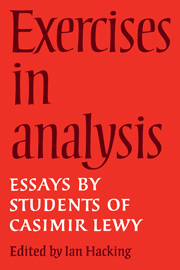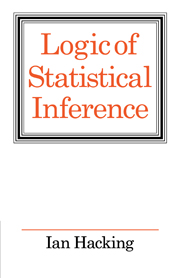The Emergence of Probability
Historical records show that there was no real concept of probability in Europe before the mid-seventeenth century, although the use of dice and other randomizing objects was commonplace. Ian Hacking presents a philosophical critique of early ideas about probability, induction, and statistical inference and the growth of this new family of ideas in the fifteenth, sixteenth, and seventeenth centuries. Hacking invokes a wide intellectual framework involving the growth of science, economics, and the theology of the period. He argues that the transformations that made it possible for probability concepts to emerge have constrained all subsequent development of probability theory and determine the space within which philosophical debate on the subject is still conducted. First published in 1975, this edition includes an introduction that contextualizes his book in light of developing philosophical trends. Ian Hacking is the winner of the Holberg International Memorial Prize 2009.
- Includes an introduction that contextualizes the book in light of new work and philosophical trends since the first edition, published in 1975
- Presents a philosophical critique of early ideas about probability, induction and statistical inference
- Addresses the development of probability from an historical perspective
Reviews & endorsements
"A fascinating in-depth study of the philosophical aspects of the concept of probability during its founding days."
Andreas Karlsson, Uppsala University
"[Hacking's] knowledge of the pertinent literature is considerable and the vigorous style of writing makes for enjoyable reading. Hacking states that his book was not written as history: be that as it may, but anyone who is interested in the history of probability and statistics, either as a philosopher or as a statistician, will find much here to think about."
A.I. Dale, Mathematical Reviews
Product details
July 2006Paperback
9780521685573
246 pages
229 × 152 × 18 mm
0.362kg
Available
Table of Contents
- Introduction
- 1. An absent family of ideas
- 2. Duality
- 3. Opinion
- 4. Evidence
- 5. Signs
- 6. The first calculations
- 7. The Roannez circle
- 8. The great decision
- 9. The art of thinking
- 10. Probability and the law
- 11. Expectation
- 12. Political arithmetic
- 13. Annuities
- 14. Equipossibility
- 15. Inductive logic
- 16. The art of conjecturing
- 17. The first limit theorem
- 18. Design
- 19. Induction.

